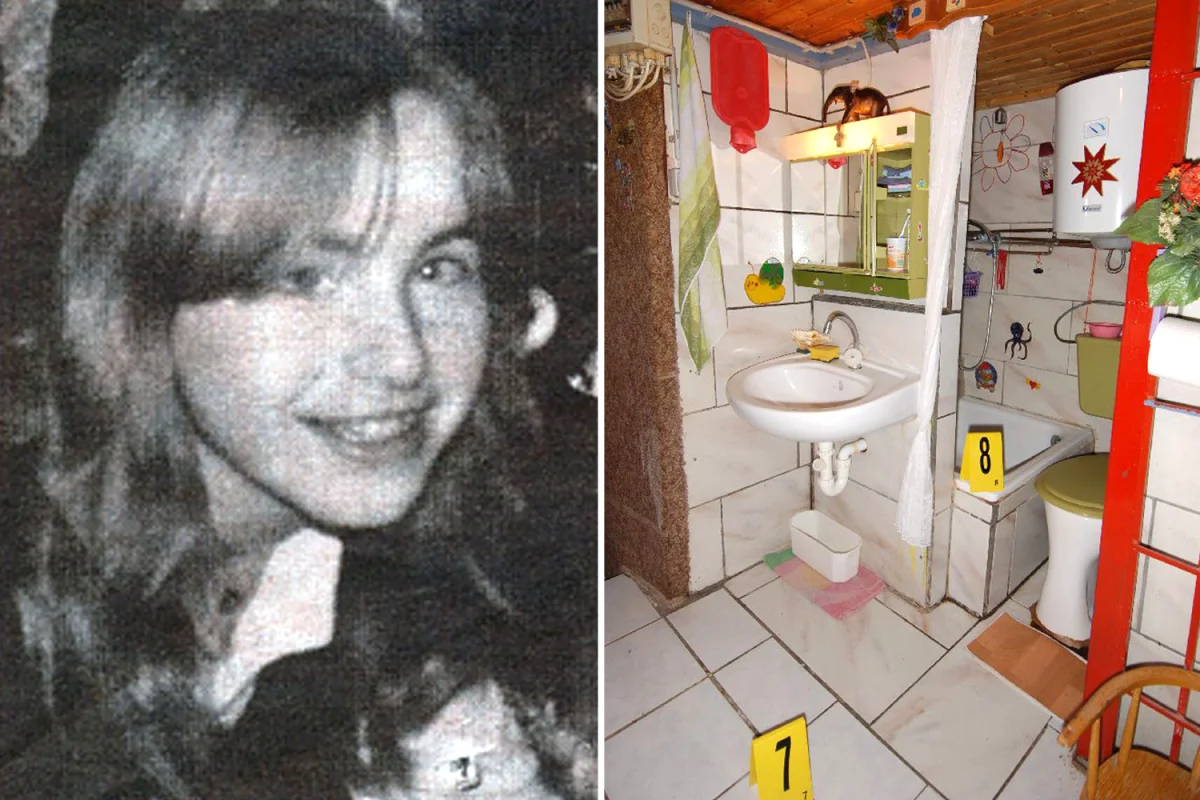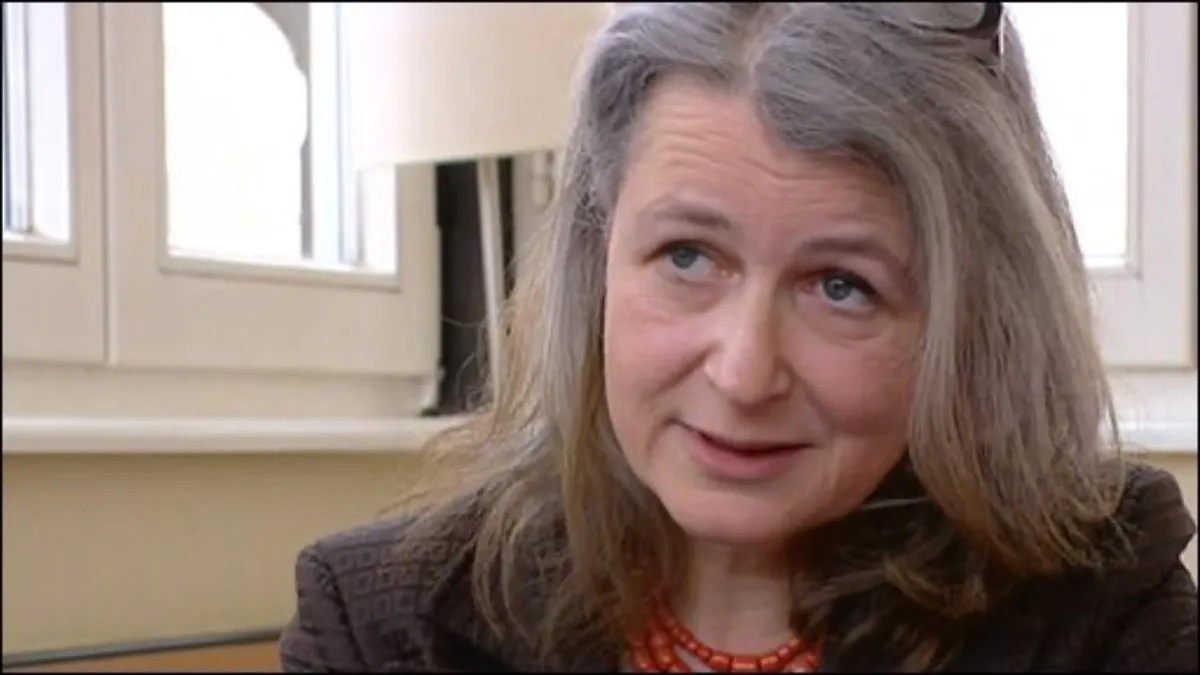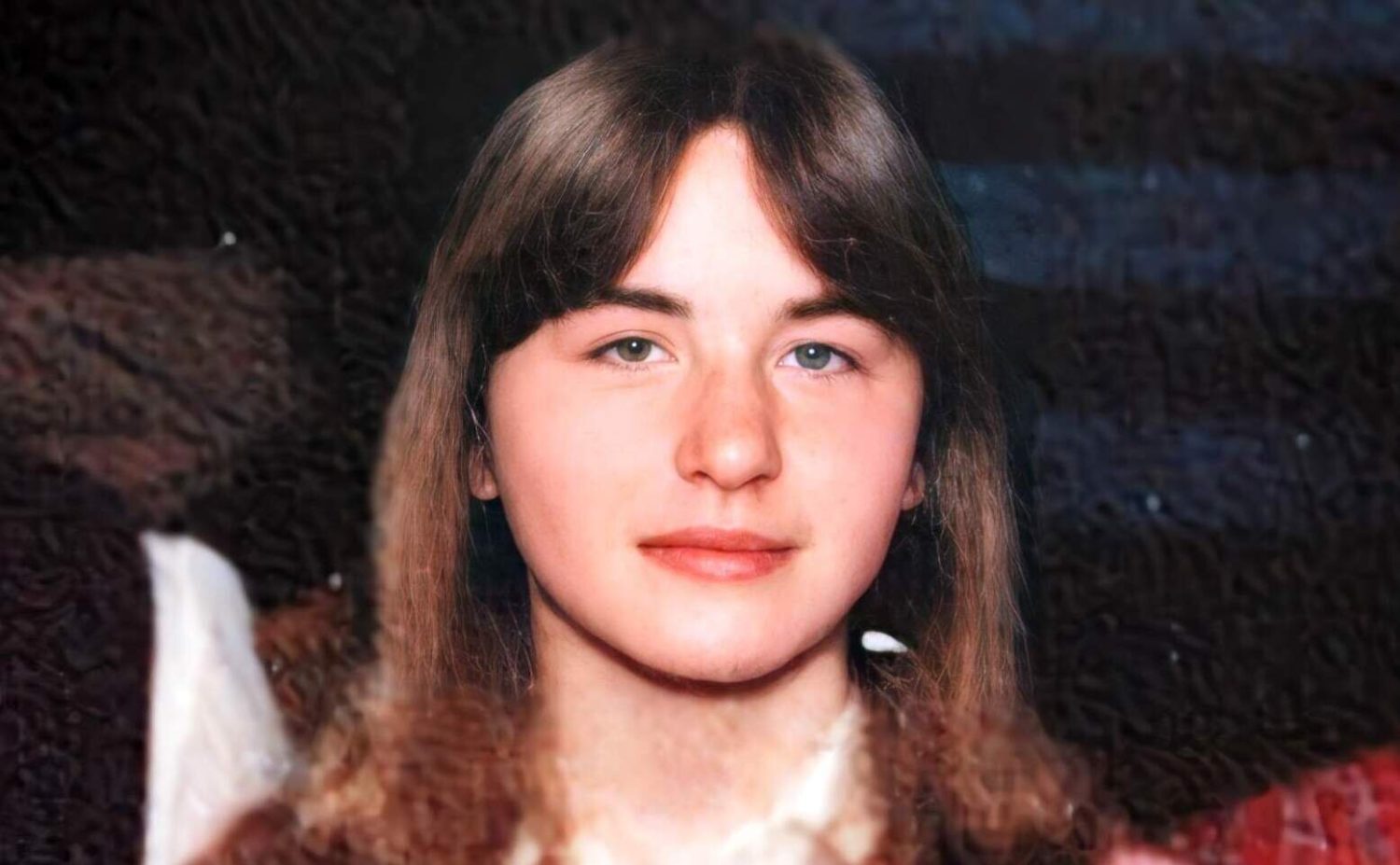The story of Elisabeth Fritzl is one that transcends the boundaries of ordinary comprehension, plunging into the darkest depths of human depravity and emerging, remarkably, with a testament to the indomitable spirit of survival. In 2008, the world was gripped by a horrifying revelation from Amstetten, Lower Austria, when a woman named Elisabeth Fritzl (born April 6, 1966) informed investigators that she had been held captive for an unimaginable period. This was not a random abduction by a stranger; the perpetrator was her own father, Josef Fritzl, and the prison was a hidden, purpose-built cellar beneath their family home.
The "Fritzl case," as it quickly became known, sent shockwaves globally, forcing a stark confrontation with the reality of domestic abuse and the hidden horrors that can exist behind closed doors. It unveiled a narrative of prolonged torment, unspeakable abuse, and the clandestine birth of children, all concealed from the outside world for over two decades. This article delves into the harrowing ordeal faced by Elisabeth Fritzl, exploring the circumstances of her captivity, the shocking discovery, and the challenging journey she has undertaken since her liberation.
Table of Contents
- Introduction to a Modern Horror Story
- Biography of Elisabeth Fritzl
- The Early Life and Abduction of Elisabeth Fritzl
- The Unfathomable Captivity: 24 Years in the Basement
- The Children of the Basement: A Deeper Tragedy
- The Discovery: How the Ordeal Came to Light
- Josef Fritzl: The Perpetrator and His Depravity
- Elisabeth's Life Since the Ordeal: A Journey Towards Healing
- The Broader Impact: Lessons from the Fritzl Case
- Conclusion: A Testament to Human Resilience
Introduction to a Modern Horror Story
The name Elisabeth Fritzl has become synonymous with one of the most horrific crimes in modern history. It evokes a chilling narrative of unimaginable horror, a stark reminder of the vulnerabilities that can be exploited even within the supposed sanctuary of a family home. The case, which came to light in Amstetten, Austria, in 2008, revealed that Elisabeth Fritzl had been held captive, sexually abused, and forced to bear children by her own father for an astonishing 24 years. This period of captivity, from 1984 to 2008, represents a quarter-century stolen from a young woman's life, a testament to a monstrous deception and an extraordinary fight for survival.
Biography of Elisabeth Fritzl
Born on April 6, 1966, Elisabeth Fritzl's early life, though seemingly ordinary on the surface, was overshadowed by the sinister intentions of her father, Josef Fritzl. Her formative years, which should have been a period of growth, learning, and freedom, were tragically cut short. Before her abduction, Elisabeth was a young woman with aspirations and a life ahead of her, unaware of the terrifying fate that awaited her at the hands of the man who was supposed to protect her. Her story is not just one of victimhood but also of incredible endurance and a quiet strength that allowed her to survive the unimaginable.
Personal Data and Biodata
To understand the timeline of this profound tragedy, it is helpful to outline the key personal details pertaining to Elisabeth Fritzl and her perpetrator.
| Attribute | Details |
|---|---|
| Full Name | Elisabeth Fritzl |
| Date of Birth | April 6, 1966 |
| Place of Birth | Austria |
| Date of Abduction | August 24, 1984 |
| Date of Release | April 19, 2008 |
| Duration of Captivity | 24 years |
| Perpetrator | Josef Fritzl (Father, born April 9, 1935) |
| Children Born in Captivity | 7 (one deceased) |
The Early Life and Abduction of Elisabeth Fritzl
Elisabeth Fritzl's life began much like any other child's in Amstetten, Austria. However, beneath the veneer of normalcy, her father, Josef Fritzl, harbored dark and disturbing intentions. Josef was known to be a controlling and abusive figure within the family, and his behavior towards Elisabeth had long been a source of concern. Years before the abduction, he had already begun to exert an unhealthy dominance over her, setting the stage for the unspeakable crime he would commit.
A Stolen Youth
On August 24, 1984, at the age of 18, Elisabeth Fritzl was lured into the cellar of her family home by her father under the pretext of helping him carry something. Once inside, he drugged her, chained her, and sealed her fate. Her formative years, a period meant for independence, education, and the blossoming of personal identity, were brutally stolen from her. The outside world was led to believe she had run away to join a cult, a lie meticulously crafted and maintained by Josef Fritzl to prevent any suspicion or search for his daughter. This elaborate deception allowed him to continue his monstrous acts, unchallenged, for over two decades.
The Unfathomable Captivity: 24 Years in the Basement
For 24 years, from 1984 to 2008, Elisabeth Fritzl was held captive in a windowless, soundproofed dungeon beneath her family's home. This was not a makeshift prison; it was a purpose-built lair, meticulously designed by Josef Fritzl to be undetectable and inescapable. The basement, which was hidden behind a series of locked and reinforced doors, was only accessible through a secret passage known only to Josef. This level of planning and execution speaks volumes about the premeditated nature of his crime and his chilling determination to maintain control over Elisabeth's life.
The Purpose-Built Lair
The dungeon itself was a small, cramped space, initially just a few rooms, later expanded. It contained basic amenities: a makeshift kitchen, a sleeping area, and a primitive bathroom. Life for Elisabeth Fritzl in this subterranean prison was one of constant terror, deprivation, and unimaginable abuse. She was subjected to repeated sexual assaults by her father, a horrific violation that became a daily reality. The lack of natural light, fresh air, and human contact beyond her tormentor created an environment designed to break the human spirit. Yet, against all odds, Elisabeth found ways to endure, holding onto fragments of hope and sanity in the face of absolute despair.
The Children of the Basement: A Deeper Tragedy
Perhaps the most disturbing aspect of Elisabeth Fritzl's captivity was the fact that she was forced to bear seven of her father's children in the dungeon. These children, born into a world of darkness and confinement, knew no other reality. One child tragically died shortly after birth, and Josef Fritzl disposed of the body. Three of the children were brought upstairs to live with Josef and his wife, Rosemarie, who was told they were abandoned babies found on their doorstep. The remaining three children, including the eldest, Kerstin, remained with Elisabeth in the basement, never seeing the light of day until their rescue.
The existence of these children, particularly those confined to the basement, highlighted the profound isolation and psychological manipulation that Josef Fritzl exerted. They were victims themselves, growing up without education, medical care, or any understanding of the world above. Their survival, alongside Elisabeth's, is a testament to the resilience of the human spirit, even when subjected to the most extreme forms of cruelty.
The Discovery: How the Ordeal Came to Light
The horrific secret of the Fritzl basement remained hidden for 24 years, a testament to Josef Fritzl's cunning and his ability to control and manipulate those around him. However, the meticulously constructed facade began to crumble in April 2008, triggered by a medical emergency involving one of the children. Kerstin, the eldest child living in the basement, became gravely ill and required hospitalization. This event forced Josef Fritzl to bring her out of the cellar, an act that would ultimately unravel his decades-long deception.
The Breakthrough in 2008
When Kerstin was admitted to the hospital, doctors were baffled by her condition, which seemed to stem from severe deprivation. They appealed for information about her mother, leading Josef Fritzl to finally bring Elisabeth Fritzl out of the basement, fabricating a story about her having returned after running away years ago. However, Elisabeth, seeing a sliver of opportunity, managed to speak to investigators. It was in the city of Amstetten, Lower Austria, that she bravely informed them of her prolonged captivity and the unspeakable crimes perpetrated by her father. Her testimony, given under strict security and psychological support, finally exposed the truth. The police, acting on her information, discovered the hidden cellar and rescued the remaining children, bringing an end to the unimaginable ordeal. This moment in 2008 marked the culmination of decades of suffering and the beginning of a long road to recovery for Elisabeth and her children.
Josef Fritzl: The Perpetrator and His Depravity
Josef Fritzl, born on April 9, 1935, was the architect of this living nightmare. His actions revealed a deeply disturbed individual capable of extraordinary cruelty and deception. He was a seemingly ordinary man, an electrical engineer by profession, who managed to maintain a facade of respectability in his community while committing unspeakable acts in secret. His ability to manipulate his family, particularly his wife, Rosemarie, into believing his elaborate lies about Elisabeth's disappearance and the "found" children, speaks to a profound psychological cunning.
During the subsequent investigation and trial, Josef Fritzl was charged with murder by omission (for the death of the infant), rape, incest, coercion, and enslavement. His trial in March 2009 drew international attention, culminating in his conviction on all counts. He was sentenced to life imprisonment in a high-security psychiatric institution, a fate that many believed was the only just outcome for the monstrous crimes he committed. The case of Josef Fritzl stands as a chilling reminder of the potential for evil to hide in plain sight, emphasizing the importance of vigilance and the critical role of law enforcement in uncovering such hidden horrors.
Elisabeth's Life Since the Ordeal: A Journey Towards Healing
The liberation of Elisabeth Fritzl and her children in 2008 marked the end of their physical captivity but the beginning of an arduous journey towards healing and integration into a world they barely knew. Their transition was handled with extreme sensitivity and secrecy by Austrian authorities, recognizing the profound psychological trauma they had endured. Elisabeth and her children were given new identities and moved to a secure, undisclosed location to begin their recovery process.
Rebuilding a Life in Secrecy
Since her ordeal, Elisabeth Fritzl and her children have been under intense psychological and medical care. Learning to live in the outside world, with its vastness, complexities, and freedoms, presented immense challenges. For the children who had never seen sunlight or experienced basic social interactions, every aspect of life was new and overwhelming. Elisabeth, too, faced the daunting task of processing decades of abuse and reclaiming her identity beyond that of a victim. Reports, though scarce due to the privacy measures in place, suggest that they have made remarkable progress. They have learned to adapt to modern life, with the children receiving education and experiencing childhood joys previously denied to them. Elisabeth has shown incredible strength in nurturing her children and navigating her own path to recovery, demonstrating an extraordinary capacity for resilience and hope despite the profound scars of her past. Her journey continues to be one of quiet courage, as she works to build a new, peaceful life for herself and her family, away from the glare of public scrutiny.
The Broader Impact: Lessons from the Fritzl Case
The Fritzl case, centered around the suffering of Elisabeth Fritzl, had a profound and lasting impact far beyond the borders of Austria. It ignited global discussions on child protection, domestic abuse, and the efficacy of social welfare systems. The case highlighted several critical issues:
- Hidden Abuse: It underscored how easily horrific crimes can be concealed within seemingly normal family structures, emphasizing the need for greater awareness and vigilance.
- Victim Identification: The challenges in identifying victims of long-term abuse, especially when perpetrators are adept at manipulation, became a key point of discussion for law enforcement and social services.
- Psychological Trauma: The case brought to the forefront the severe and complex psychological trauma endured by victims of prolonged captivity and abuse, necessitating specialized long-term care.
- Legal Precedent: Josef Fritzl's conviction for enslavement set a significant legal precedent, acknowledging the extreme deprivation of liberty as a distinct and severe crime.
- Community Responsibility: It prompted communities worldwide to reflect on their role in recognizing and reporting suspicious activities, even when they seem minor or involve "private family matters."
The case of Elisabeth Fritzl serves as a stark reminder of humanity's capacity for evil, but more importantly, it stands as a powerful testament to the resilience of the human spirit. It has spurred improvements in how authorities respond to missing persons cases and how victims of long-term abuse are supported, ensuring that such a tragedy, if it ever occurs again, might be uncovered sooner.
Conclusion: A Testament to Human Resilience
The story of Elisabeth Fritzl is one that is difficult to recount, filled with unimaginable suffering and profound injustice. Yet, it is also a story of extraordinary courage, resilience, and the unyielding will to survive. For 24 years, Elisabeth Fritzl endured a living hell, robbed of her youth, freedom, and dignity by the very person who should have protected her. Her brave decision to speak out in 2008 not only secured her own freedom and that of her children but also exposed a monstrous crime that shocked the world.
Elisabeth's journey since her liberation has been a private one, focused on healing and rebuilding a life for herself and her children away from the public eye. Her ability to not only survive but to strive for a future filled with hope is an enduring inspiration. The Fritzl case remains a powerful reminder of the dark potential within humanity, but more importantly, it stands as a testament to the unbreakable spirit of those who endure the most profound adversities. We encourage readers to reflect on the importance of vigilance, empathy, and supporting organizations dedicated to preventing abuse and aiding survivors. Share this article to raise awareness, and explore other stories of resilience on our site.
Related Resources:



Detail Author:
- Name : Prof. Eloise Nikolaus
- Username : sandy.rice
- Email : ezequiel.harris@gmail.com
- Birthdate : 1993-04-11
- Address : 7809 Davis Groves Apt. 056 South Loyal, SD 77188-9516
- Phone : 703-821-8302
- Company : Berge-Murray
- Job : Housekeeping Supervisor
- Bio : Et ratione ut placeat voluptas eaque. Excepturi cum temporibus et facilis. Veniam molestiae aut corporis ea dicta quam. Perferendis sunt aperiam et sit voluptas voluptate.
Socials
linkedin:
- url : https://linkedin.com/in/goldner1972
- username : goldner1972
- bio : Nostrum dicta nisi soluta.
- followers : 4620
- following : 2449
facebook:
- url : https://facebook.com/gusgoldner
- username : gusgoldner
- bio : Ut minus qui ut. Ullam hic enim suscipit recusandae.
- followers : 3439
- following : 344
instagram:
- url : https://instagram.com/gus_official
- username : gus_official
- bio : Soluta sit velit in. Ut id omnis odit harum.
- followers : 6485
- following : 108
twitter:
- url : https://twitter.com/gus_goldner
- username : gus_goldner
- bio : Sapiente eum provident voluptatem mollitia asperiores fugiat. Libero qui amet ut similique qui quia porro. Dolorum in rerum fuga ratione et est.
- followers : 4803
- following : 189